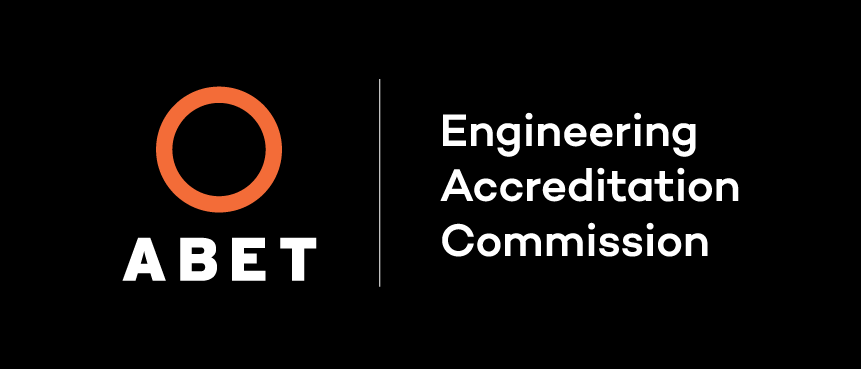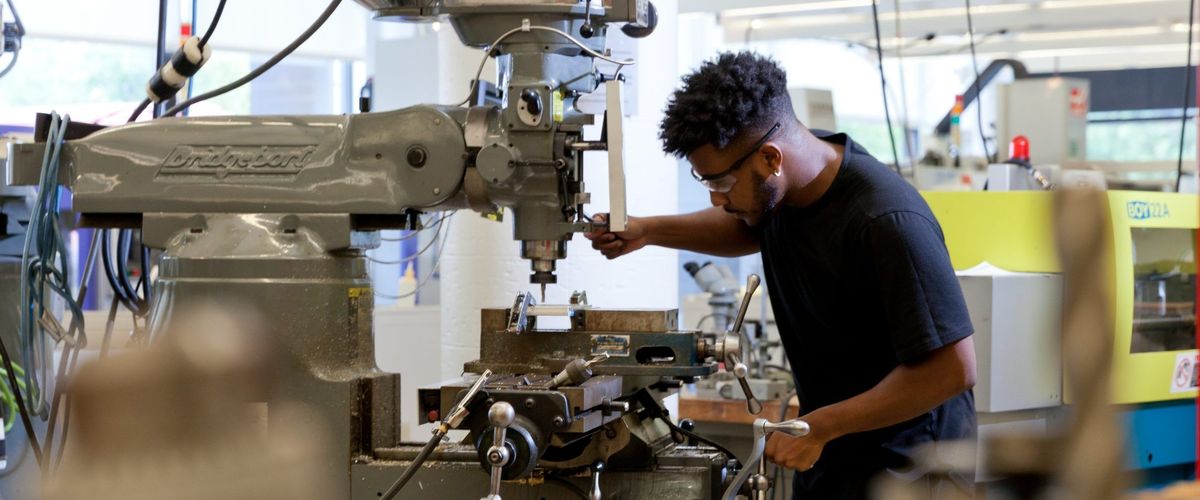As a student studying Mechanical Engineering at Boston University, you will learn how robots move, bubbles burst, airplanes fly, and big data enables big ideas. You will learn about technological innovations that enable sustainable energy, engineer biological tissues, create new materials, and advance scientific pursuits at the nanoscale and at the scale of our solar system. You will design and create engineering solutions to real-world challenges. The College of Engineering’s goal is to create the Societal Engineer—a student who will take their engineering education and experiences and improve our society.

A Solid Foundation
Students in the Mechanical Engineering program gain experience in laboratory settings through experiments associated with all of their natural science courses (in the freshman and sophomore years) and with most of their engineering science courses (in their sophomore and junior years). Laboratory experience culminates in the senior year with an intensive mechanical measurements and instrumentation course.
Computer experience begins in the freshman year with the required, college-wide introductory computer course. It then continues throughout the curriculum through its use in some homework, projects, and laboratories in most subsequent engineering courses. Students gain experience in programming in MATLAB and C; and using commercial software packages for CAD, spreadsheet analysis, finite element analysis, and graphical-interface-driven laboratory systems for data acquisition, data analysis, and instrument control.
The required mechanical engineering design experience is integrated throughout the curriculum, beginning in the sophomore year and increasing in scope in each subsequent year.
Diverse Disciplines
Our students can specialize their Mechanical Engineering studies by concentrating on Aerospace Engineering, Manufacturing, Energy Technologies, Nanotechnology, or Technology Innovation. Outside of the classroom, our mechanical engineers lead student-run groups that launch rockets (BU Rocket Propulsion Group), design drones (BU UAV), and build electric and gas-powered race cars (BU Racing; BU Baja SAE). Students perform experimental, computational, and interdisciplinary research with professors who design biomedical devices, build soft robots, study graphene, fold origami, control the flight of drones, utilize additive manufacturing, and levitate drops and bubbles. As a Mechanical Engineering student, you will design and build products, machines, and research prototypes in the Engineering Product & Innovation Center (EPIC), characterize your creations in the shared facilities of the Photonics Center, turn your ideas into reality at the BU Build Lab (Innovate@BU), and collaborate with students in the Questrom School of Business to understand how practicing engineers thrive in industry.
Senior Design
Senior Design is a year-long project experience where students utilize the knowledge gained from their previous engineering coursework. Students work in small teams on impactful contemporary projects that can be design or research related. Typical project topic areas are aerospace, manufacturing, energy technologies, design competitions from government or professional societies and projects sponsored by academic or commercial organizations. Senior Design is often used to satisfy the experiential requirement for engineering “concentrations”.
As part of the project experience senior design also covers other aspects of the engineering profession. Topics such as professional ethics of engineering, teamwork, oral and written communication all are important attributes of the professional engineer.
Program Planning Sheets
Please see the Mechanical Engineering Program Planning Sheets for a detailed matrix of the four-year undergraduate curriculum.
How to Apply
Visit the BU Undergraduate Admissions site for more information.
Undergraduate Program Educational Objectives
A few years after graduation, we expect graduates of our program will:
- Leverage their broad technical, creative, and leadership skillsets to generate and pursue innovative scientific, technical, or business initiatives.
- Uphold the highest ethical standards in the execution of professional roles in the field of mechanical engineering and related disciplines.
- Improve and expand their technical and professional skills through the pursuit of advanced degrees or through informal study.
- Contribute to the betterment of society by promoting a collaborative, diverse, equitable, and inclusive culture in the workplace and in their communities.
(^Ratified by the ME Faculty May 7th, 2021)
Graduates of the Mechanical Engineering Undergraduate degree program will have:
- An ability to identify, formulate, and solve complex engineering problems by applying principles of engineering, science, and mathematics.
- An ability to apply engineering design to produce solutions that meet specified needs with consideration of public health, safety, and welfare, as well as global, cultural, social, environmental, and economic factors.
- An ability to communicate effectively with a range of audiences.
- An ability to recognize ethical and professional responsibilities in engineering situations and make informed judgments, which must consider the impact of engineering solutions in global, economic, environmental, and societal contexts.
- An ability to function effectively on a team whose members together provide leadership, create a collaborative and inclusive environment, establish goals, plan tasks, and meet objectives.
- An ability to develop and conduct appropriate experimentation, analyze and interpret data, and use engineering judgment to draw conclusions.
- An ability to acquire and apply new knowledge as needed, using appropriate learning strategies.
Contact

The BS degree program in mechanical engineering is accredited by the Engineering Accreditation Commission of ABET (www.abet.org).
